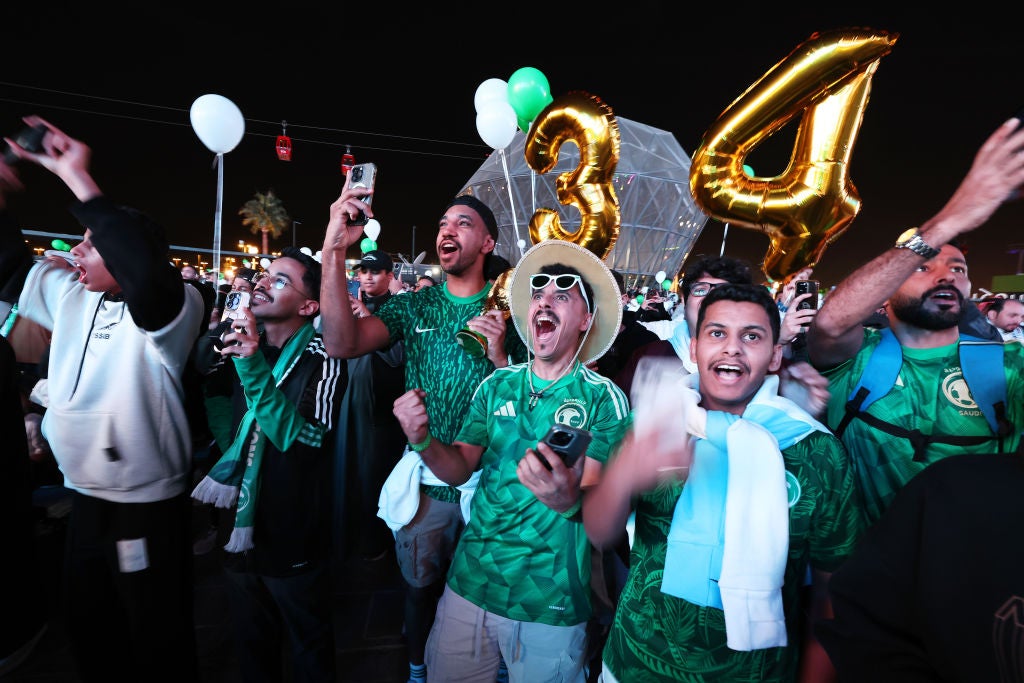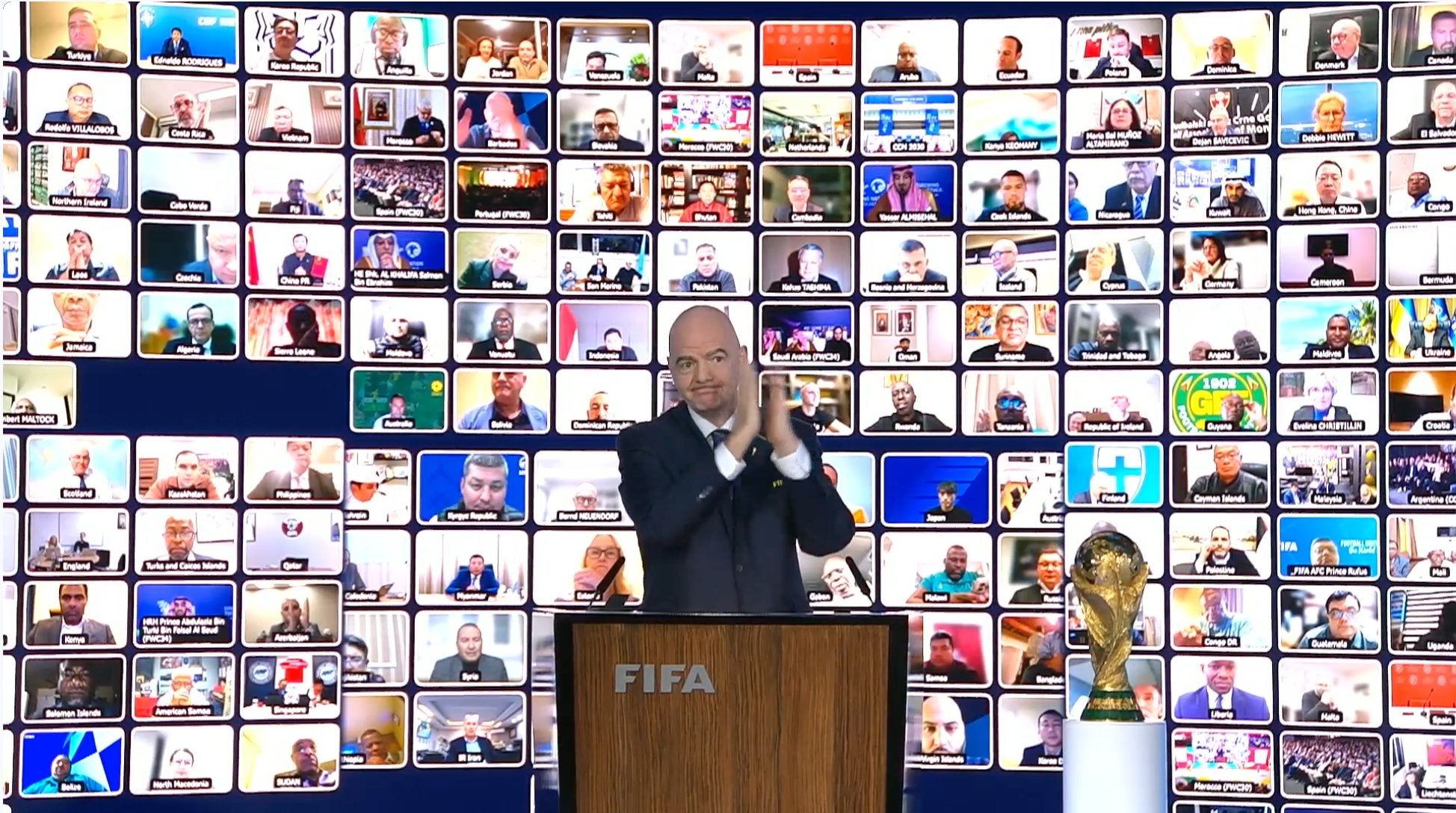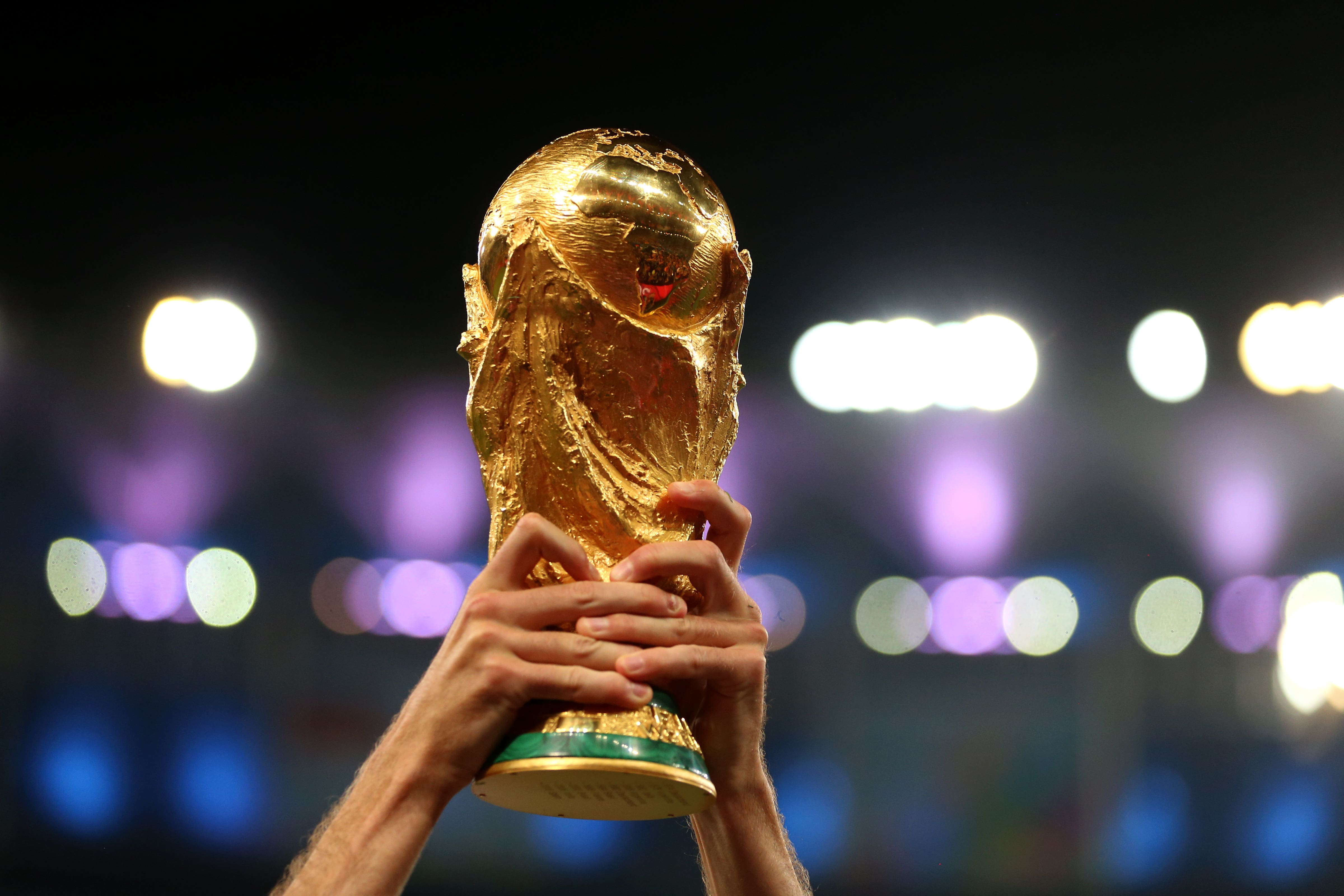FA explains decision to back Saudi Arabia as 2034 World Cup hosts despite human rights concerns
The sole Saudi Arabia bid was waved through unopposed, while the 2030 World Cup will be hosted by Morocco, Portugal and Spain following games in Uruguay, Argentina and Paraguay

Your support helps us to tell the story
From reproductive rights to climate change to Big Tech, The Independent is on the ground when the story is developing. Whether it's investigating the financials of Elon Musk's pro-Trump PAC or producing our latest documentary, 'The A Word', which shines a light on the American women fighting for reproductive rights, we know how important it is to parse out the facts from the messaging.
At such a critical moment in US history, we need reporters on the ground. Your donation allows us to keep sending journalists to speak to both sides of the story.
The Independent is trusted by Americans across the entire political spectrum. And unlike many other quality news outlets, we choose not to lock Americans out of our reporting and analysis with paywalls. We believe quality journalism should be available to everyone, paid for by those who can afford it.
Your support makes all the difference.The Football Association has explained its decision to back Saudi Arabia as hosts of the 2034 World Cup, and says it has received “assurances” from the Middle East nation that LGBTQ+ supporters will be “safe and welcome”.
On Wednesday, Fifa president Gianni Infantino confirmed the winning bids for the next two tournaments. As expected, the 2030 World Cup will be played in Morocco, Portugal and Spain, following three matches in Uruguay, Argentina and Paraguay to commemorate the tournament’s centenary, with Saudi Arabia awarded the World Cup in 2034. Both bids were unopposed.
It followed a hugely controversial process that left Saudi Arabia as the sole bidder for the 2034 World Cup, with further concerns raised by human rights campaigners. Amnesty International warned that hosting the World Cup in Saudi Arabia will put “many lives at risk” due to fears over migrant workers involved in huge construction projects, while an “independent” human rights assessment was criticised as a “whitewash”.

At the remote meeting of the Fifa Council on Wednesday, Fifa combined the decision for the 2030 and 2034 World Cups into a single vote - with “acclamations” of applause given by invited representatives of the national associations over a video link. With the notable exception of Norway, who submitted a letter of protest of the “flawed” bidding process, the FA expected both the 2030 and 2034 bids to receive near unanimous global support.
The FA was also aware that the UK Government views Saudi Arabia as a key political and strategic ally and Prime Minister Keir Starmer met with the Crown Prince Mohammad Bin Salman during his visit to the Gulf this week. The UK sees nations such as Saudi Arabia and the United Arab Emirates as major investors, who can boost economic growth, but the FA said that it fully expects the World Cup hosts to respect its commitment to human rights.
A statement from the FA following the Fifa Council meeting later clarified its position: “After a careful review of both proposals, we supported the two World Cup bids – from Spain/Portugal/Morocco in 2030, and Saudi Arabia in 2034. Both bids are technically strong and meet the Fifa criteria to host the Men’s World Cup. Our focus is on ensuring that all our fans can attend and enjoy tournaments.
“The FA Board met the Saudi Arabian Football Federation last month to discuss their bid in more detail. We asked them to commit to ensuring all fans would be safe and welcome in Saudi Arabia in 2034 – including LGBTQ+ fans. They assured us that they are fully committed to providing a safe and welcome environment for all fans.

“Football is a global game, and is for everyone. Our commitment to diversity and inclusion means being respectful of all, including all religions and cultures. We also believe that hosting World Cups can be a catalyst for positive change, which is best delivered by working collaboratively in partnership with host nations. We will work with Fifa and Uefa to ensure that commitments to respect all human rights are delivered.”
The FA were prepared to make a stand for human rights during the 2022 World Cup in Qatar, but plans for captain Harry Kane to wear a ‘OneLove’ armband at the tournament were scrapped after Fifa threatened “sporting sanctions”.
At the end of the Fifa Council, president Infantino said: “We are aware of critics and fears and I fully trust our hosts to address all open points.
"We have a transparency that will shape real and lasting change. That is what we expect and what we look forward to, social improvements and positive human rights impacts. That is one of the responsibilities of hosting a World Cup, and the world will of course be watching.”



Join our commenting forum
Join thought-provoking conversations, follow other Independent readers and see their replies
Comments